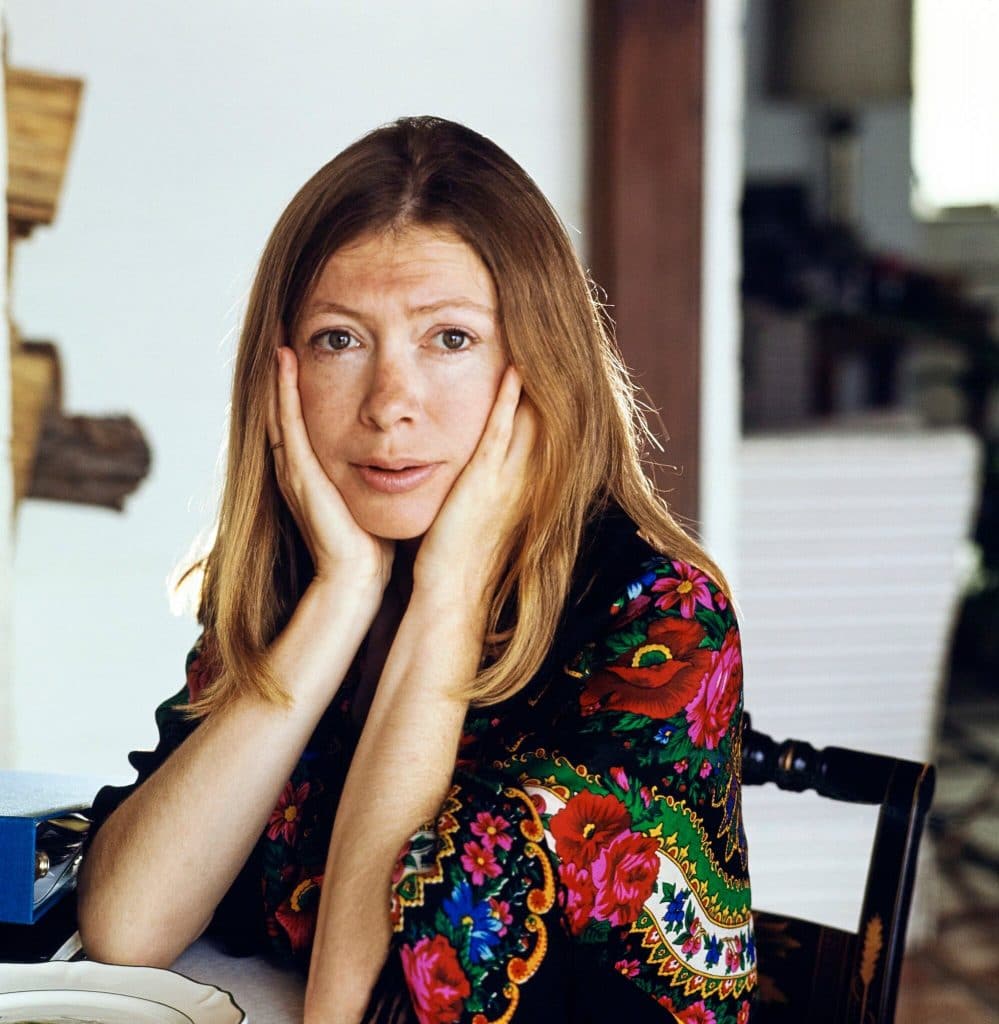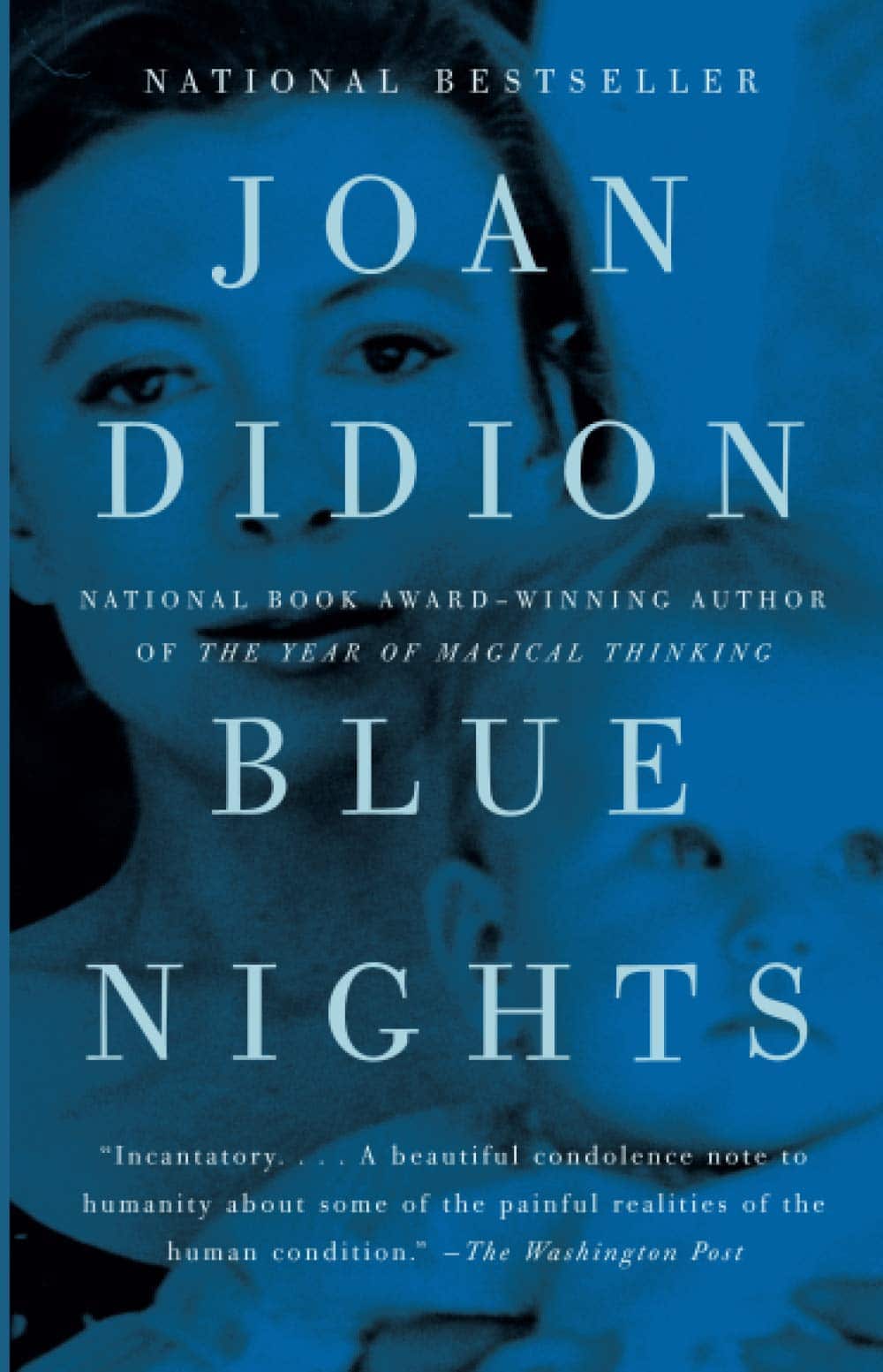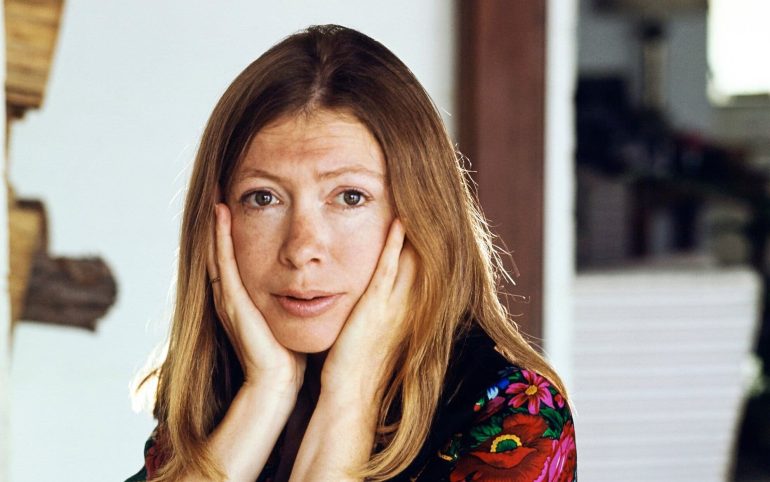Joan Didion passed away at the age of 87 yesterday, Thursday, December 23rd. The cause of death was Parkinson's disease.
Known for her sharp gaze in the news but also for the unique combination of her personal and political style in journalism and her essays, Didion gained immense recognition for her "memoirs of grief" in the book "The Year of Magical Thinking" an account of the loss of her husband John Gregory Dunne. Known for the pioneering combination of staff and politicians in journalism and her essays, Didion became a household name for her writings on American society.
Her voice is so special in literature as well as in political reporting which for many years had won it during the turbulent period of the 60s. Didion has established a narrative style that focuses not so much on facts as on subjects, atmospheres and perceptions. She is usually present in her essays as a voice rather than a character, as an observer rather than a participant - although boundaries are blurred regularly. However, even when she does not say directly what she feels, she is there in the composition of every sentence, in the sounds, gestures and images in which she chooses to focus her attention.
A distinct female figure in the male-dominated space of emerging journalism among names such as Tom Wolfe, Truman Capote and Gay Talese, Didion cast her sharp and penetrating gaze into American society and her life.
Joan Didion in 1972 / Henry Clarke - Condé Nast, via Shutterstock
She became famous with a series of penetrating, sought after articles in the magazine Life and The Saturday Evening Post exploring the face of postwar American life. Didion spent her last years in New York, but kneaded and shaped her personal style through the elements of her homeland, California, which offered her the richest material.
With sharp, well-known vignettes, she captured her cruelty and beauty, her role as a magnet for anxious settlers, the golden promise of a better tomorrow and her great influence on the cultural fabric.
"We believed in new beginnings", ewrote in "Where I Was From" (2003), a mental portrait of the state. In two early pioneering collections of essays, "Slouching Towards Bethlehem" (1968) and "The White Album" (1979) she turned her cool, frightened gaze on hippies as well as eccentric personalities, managing to channel the spirit of those decades into from her own highly idiosyncratic and personal writing. Didion fit the season perfectly - slightly paranoid, slightly hysterical, intensely sensitive. He had a natural attraction for broken personalities.

Η Joan didion was born on December 5, 1934, in Sacramento. Frank Didion's father was an army officer, while Eduene (Jerrett)'s mother Didion was a housewife and during World War II the family moved to return to Sacramento after the war. As a teenager, she was deeply influenced by Hemingway novels, her handling of dialogue and silence, and Joseph Conrad was another key figure.
He graduated from the University of California, Berkeley, where he received a degree in English in 1956, and soon won competitions in the magazine. Miss and a little later in Spindrift where and began working as editor of short text articles including photo captions. «In an eight-line caption, everything had to work, every word, every party", He will state later.
We are in the early 1960s where among imaginative articles she publishes her first novel, "Run, River" (1963), referring to the dissolution of a Sacramento family. This book immediately reveals the anxiety and issues that will occupy her in her next works - violence, terror, the sick feeling that the world was out of control.
Didion's first book of collectible journalism, Slouching Towards Bethlehem, was published in 1968, a year in which Didion was a psychic rascal, establishing a reputation for being cool and slowly becoming a cult figure.
The 1964 married John Gregory Dunne, author of The Times, they move to California to devote themselves to screenwriting and adopt a daughter, Quintana Roo, giving her a random name they saw on a map of the state of Mexico.
Over time, they gain fame and recognition, becoming a famous Hollywood couple enjoying a comfortable life with one foot in Hollywood and the other in Manhattan literary salons. In 2003 John Gregory Dunne died of a heart attack at the age of 71 and two years later, Didion will lose her daughter at the age of 39. The shock of the loss is huge and unbearable. Didion will write about the death of her husband and her daughter's illness in "The Year of Magical Thinking" (2005), which won the National Prose Book Award in 2005 and was adapted for the Broadway scene in 2007 in a monologue with Vanessa Redgrave. In 2011 grief becomes an unwanted inspiration again and this time Didion writes about the loss of her daughter in her memoirs "Blue Nights".
In Blue Nights (2011), presents another aspect of Quintana's history as a Hollywood kid who was afraid of being abandoned, she had suicidal tendencies, was diagnosed with manic depression while in adulthood she had difficulties with her family. However, at the heart of the book and the true theme of "Blue Nights" was Didion herself and her unbearable loneliness.
«She was a wise and sophisticated narrator of the truthWill be mentioned by Shelley Wagner, her curator at Knopf Publications. «We will mourn her death, but we will celebrate her life, knowing that her work will inspire future generations of readers and writers.", Added Shelley Wagner.

Some of her opinions:
«We soon forget what we thought we could never forget. We also forget about love and betrayal, we forget everything we whispered but also about what we screamed. We forget who we were»- On keeping a notebook, from Slouching Towards Bethlehem (1968)
«We tell stories to ourselves to live"- The White Album (1979)
«We are imperfect mortals, aware of this mortality, even when we repel it, failed by our own complexity, so wired that when we mourn our losses we also mourn, for better or worse, ourselves. About how we were. For what we are no longer. About how we will not be one day at all"- The Year of Magical Thinking (2005)

"I know what fear is. Fear is not about what is lost. What is lost is already on the wall. What is lost is already behind the locked door. Fear is about what is left to be lost"- Blue Nights (2011)
elculture.gr
